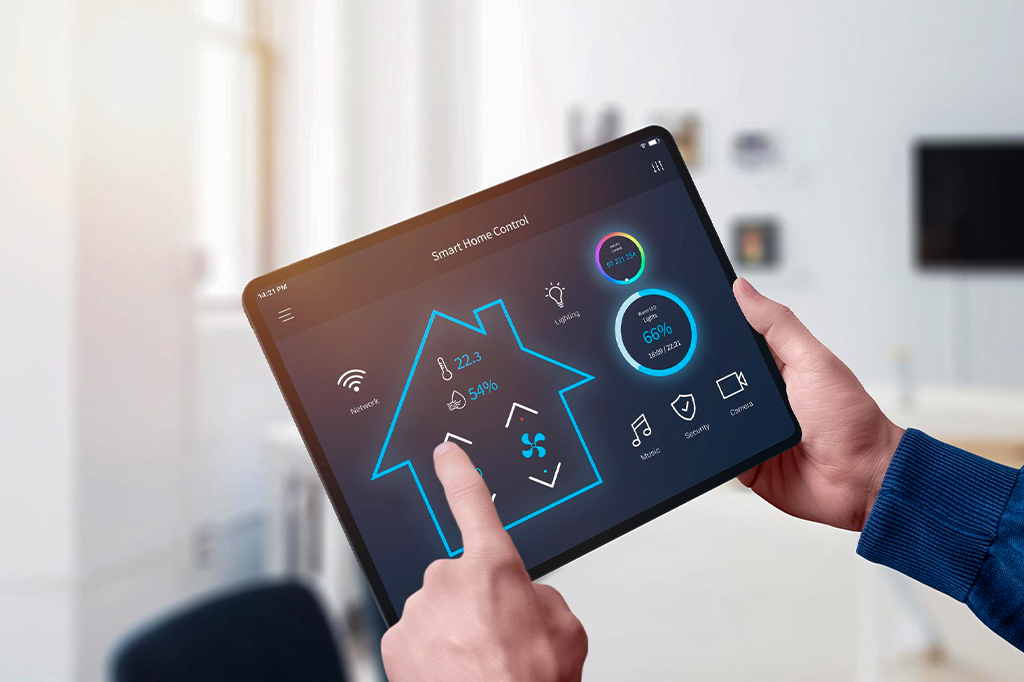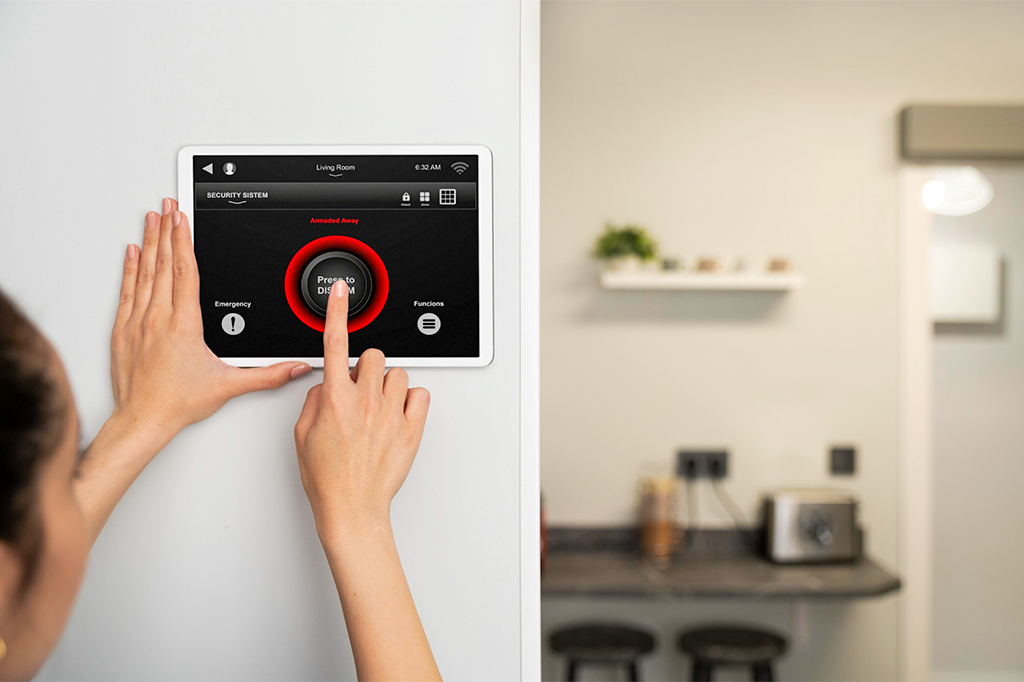Smart home technology, also known as home automation, has been making our lives more convenient and efficient. From controlling lights and thermostats with our smartphones to having virtual assistants like Alexa or Google Home manage our daily tasks, the possibilities are endless. But is investing in smart home technology worth it? In this guide, we'll break down the pros and cons of embracing the smart home revolution in simple language to help you make an informed decision.
Pros of Smart Home Technology

- Convenience: One of the most significant advantages of smart home technology is convenience. You can control various devices and systems in your home with a few taps on your smartphone or a simple voice command. Imagine adjusting the thermostat, dimming the lights, or locking your doors without getting out of bed.
- Energy Efficiency: Smart thermostats can learn your heating and cooling preferences and adjust the temperature accordingly, saving you money on energy bills. Lights and appliances can also be set to operate more efficiently, reducing overall energy consumption.
- Security: Smart home security systems offer peace of mind by allowing you to monitor your home remotely. You can receive real-time alerts if there's unusual activity or if a door or window is opened when it shouldn't be. Smart locks enable secure access control.
- Safety: Some smart home devices enhance safety. Smoke detectors, carbon monoxide detectors, and water leak sensors can send alerts to your phone in case of emergencies, helping you respond quickly to potential hazards.
- Remote Monitoring: Whether you're at work or on vacation, you can keep an eye on your home through security cameras and sensors. This remote monitoring capability provides added security and allows you to check in on your pets or loved ones.
- Customization: Smart home systems can be tailored to your preferences. You can create schedules, automation routines, and personalized settings for lighting, heating, and more.
Cons of Smart Home Technology

- Cost: One of the most significant drawbacks is the initial cost. Smart devices and systems can be expensive to purchase and install. However, it's essential to consider the potential long-term savings on energy bills and increased home value.
- Compatibility: Not all smart devices work seamlessly together. Compatibility issues can arise when trying to integrate devices from different manufacturers or ecosystems. It's crucial to research and plan your smart home setup carefully.
- Privacy Concerns: Smart devices collect data about your usage patterns, which can raise privacy concerns. Always read the privacy policies and opt for devices that offer strong security features and data protection.
- Technical Complexity: Setting up and troubleshooting smart home devices may require technical expertise. Some users might find the installation and configuration process challenging.
- Dependence on Connectivity: Smart home devices rely on a stable internet connection. If your internet goes down or there's a disruption in the service, you may lose remote control and monitoring capabilities.
- Potential Security Risks: While smart home technology can enhance security, it can also introduce vulnerabilities. Poorly secured devices can be targets for hacking, potentially compromising your privacy and safety.
Is Smart Home Technology Worth the Investment?
Whether or not smart home technology is worth the investment depends on your specific needs, budget, and priorities. Here are some factors to consider:
1. Budget: Start by evaluating your budget. Determine how much you're willing to spend on smart home devices and systems. Keep in mind that the initial cost may be offset by long-term energy savings and increased home value.
2. Priorities: Identify your priorities. Are you primarily interested in energy efficiency, convenience, security, or a combination of these factors? Understanding your goals will help you choose the right smart home devices.
3. Compatibility: Research and choose devices that are compatible with each other to ensure seamless integration. Consider investing in a smart home hub or ecosystem from a single manufacturer to simplify compatibility issues.
4. Privacy and Security: Pay close attention to the privacy and security features of smart devices. Opt for products with strong encryption, regular software updates, and clear privacy policies.
5. Long-Term Savings: While the upfront cost can be significant, smart home technology can lead to long-term savings on energy bills. Calculate the potential savings over time to determine if the investment makes financial sense.
6. Technical Proficiency: Consider your technical proficiency and comfort level with setting up and troubleshooting smart devices. If you're not tech-savvy, you may want to start with user-friendly options.
7. Future Expansion: Think about whether you plan to expand your smart home system in the future. Investing in a flexible ecosystem that allows for easy additions can be a wise choice.
8. Resale Value: Installing smart home technology can increase the resale value of your home. Many homebuyers today appreciate the convenience and energy-saving features that come with a smart home. So, while you may be investing upfront, you could potentially see a return on that investment when you sell your property.
9. Remote Control: Smart home technology allows you to control your home from anywhere with an internet connection. This means you can adjust your thermostat, check security cameras, and even turn off forgotten lights when you're not at home. It's a valuable feature for frequent travelers or busy individuals who want to keep tabs on their home from afar.
10. Aging in Place: If you plan to stay in your home as you age, smart home technology can make it safer and more accessible. Devices like smart doorbells and motion-activated lighting can provide an extra layer of security, while voice-activated assistants can help with tasks that become challenging as you get older.
11. Environmental Impact: By optimizing your energy usage with smart thermostats, lighting controls, and energy-efficient appliances, you can reduce your carbon footprint. Many people find satisfaction in knowing that their smart home is also an environmentally responsible home.
12. Entertainment: Smart home technology extends beyond utilities and security. You can also use it to enhance your entertainment experience. Smart TVs, sound systems, and even motorized projector screens can be integrated into your home automation system, creating a more immersive entertainment space.
13. Peace of Mind: The ability to receive real-time alerts and notifications regarding your home's security and safety can provide invaluable peace of mind. Knowing that you'll be immediately informed of any potential issues can help you rest easy, whether you're at work or on vacation.
Conclusion
Smart home technology offers many advantages, including convenience, energy efficiency, and enhanced security. However, it's essential to weigh these benefits against the potential drawbacks, such as cost and privacy concerns. Ultimately, the decision to invest in smart home technology should align with your specific needs and priorities. By carefully considering your budget, priorities, and long-term goals, you can make an informed choice that enhances your daily life while ensuring your privacy and security are protected.









No Comment! Be the first one.